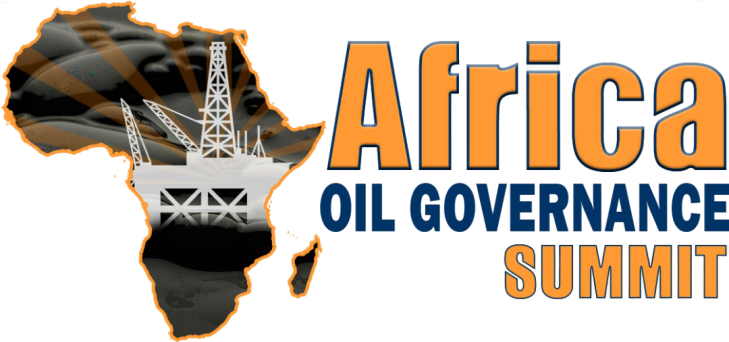ABOUT THE CONFERENCE
The Africa Oil Governance Summit is an annual event that brings together stakeholders in Africa’s petroleum industry to deliberate on emerging governance issues in the sector. Instituted in 2015, the summit provides a unique platform where stakeholders in Africa’s petroleum industry share best practices on maximizing the benefits of resource extraction through efficient governance approaches. The Africa Center for Energy Policy (ACEP) realized the need for the African continent to consolidate gains and right wrongs made from the management of petroleum resources and initiate dialogue aimed at translating the extraction of oil into socio-economic development. The Center recognizes that the vehicle to this is to strengthen governance frame work that reduces incentives for corruption, builds capacity and invests revenues efficiently. The maiden Summit in 2015 broadly discussed governance issues in Africa’s oil resources. It touched on contract transparency, local content issues, institutional development and revenue accountability. In 2016, the summit focused on survival strategies for Africa’s oil producers amidst low oil prices, and the 2017 summit focused on the developmental implications of open contracting in upstream oil and gas, and revenue management and utilization. The 2018 summit will focus on increasing the impacts of local content policies in resource-rich African economies.
Local content policies have become priority for policy makers in resource endowed countries who largely depend on their extractive sectors to support sustainable economic growth and development. The implication of local content polices are diverse: it could mean job creation, value addition and industrial development, and local economic growth through forward, sideward and backward linkages of the extractive sector to the rest of a nation’s economy. All these emanate from the enormous potential of the extractive sector in generating revenue and other indirect benefit to the economy.[1]
Measures aimed at stimulating local content development are grouped into:
- Sourcing local inputs and local linkages to the upstream sector,
- Local value addition and beneficiation, which is basically aimed at downstream promotion and lastly measures aimed at integrating upstream, downstream, and also the overall effects on local business growth.[2]
Generally local content polices across the world have common objectives and goals;
- Aim to leverage the extractive value chain to generate sustained and inclusive growth through economic diversification and employment opportunities.
- Generate opportunities for regional integration and international trade and can gradually reduce countries’ dependence on external aid.
- Depend on early engagement and collaboration among government, extractive industry companies, and communities.[3]
However, when it comes to its implementation, several challenges emerge depending on the context of the country.
Challenges
There are streak of common challenges encountered by African countries in their quest to maximize the benefits of their local content policies. Among them include:
- Skills gap- there exists a wide skills gap in some African countries that make it difficult for extraction companies to employ nationals, particularly in technical roles. Governments should be thinking of how to breach the skills gap so as to take full advantage of the local content policies.
- Corruption and politically motivated procurements – it is no news that some political office holders push contracts to local companies which they have vested interest in or compel companies to partner these politically constituted companies. For example, in Nigeria, requirements to partner with local companies resulted in corrupt schemes wherein political elites created shell companies to profit from the law. Similarly, many suspect that the motivation for the national smelting requirement in the 2008 Indonesia mineral law stemmed from politicians seeking financial benefit for their smelting plants. Countries can mitigate the potential of corruption in local content by requiring transparent procurement processes and making information easily available to oversight actors, such as civil society and parliamentarians. Compliance with requirements to disclose the beneficial owners of extractive companies and subcontractors, such as those being piloted under the Extractive Industries Transparency Initiative, will also help reduce corruption and elite capture of local content opportunities.[4]
- Poorly designed local content polices.
- Potential conflict with international agreements signed by member countries of World Trade Organization and how to create balance between satisfying these international demands and local content requirement. The signing of WTO agreements also limited the space within which local content polices can be legislated and implemented. For example, General Agreement on Tariffs and Trade (GATT) and General Agreement on Trade in Services (GATS) constitute bilateral agreements between member countries and this should not supersede national laws on local content. Care must be taken not to conflict local content policies with already signed WTO agreements. Some countries signed on to plurilateral agreement on government procurement (GPA). Under this agreement, members sign non-discrimination agreement between local and foreign suppliers. Local content measures are seen as anti-competitive measures that force international companies to comply with government policy targets in employment, or forcibly partnering with local suppliers or companies instead of searching for competent service providers based on cost or quality or services delivery.[5]
These challenges among many others are of concern to stakeholders and governments, whose aim is to maximize benefits from the extractive sector for improved socio-economic development. African countries cannot overcome these by working as individual countries; a strong continental coalition and networking is required to create a strong and viable voice as one continent.
[1] See http://documents.worldbank.org/curated/en/549241468326687019/pdf/789940REVISED000Box377371B00PUBLIC0.pdf
[2] See http://ecdpm.org/wp-content/uploads/DP205-Local-Content-Trade-Investment-Ramdoo-December-2016.pdf
[3] See World Bank ( 2016) Local content in oil gas and Mining, available http://www.worldbank.org/en/topic/extractiveindustries/brief/local-content-in-oil-gas-and-mining
[4] https://resourcegovernance.org/sites/default/files/nrgi_Local-Content.pdf
[5] See Hestermeyer and Nielson ( 2014) The legality of Local Content Laws under WTO Laws, available online through https://www.researchgate.net/publication/279321597_The_Legality_of_Local_Content_Measures_under_WTO_Law
